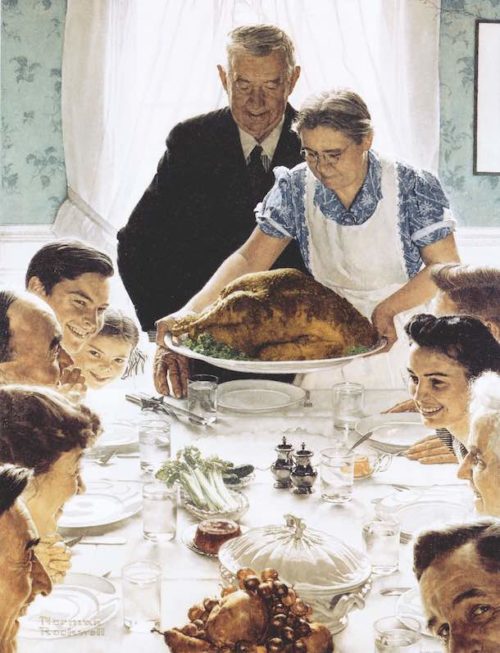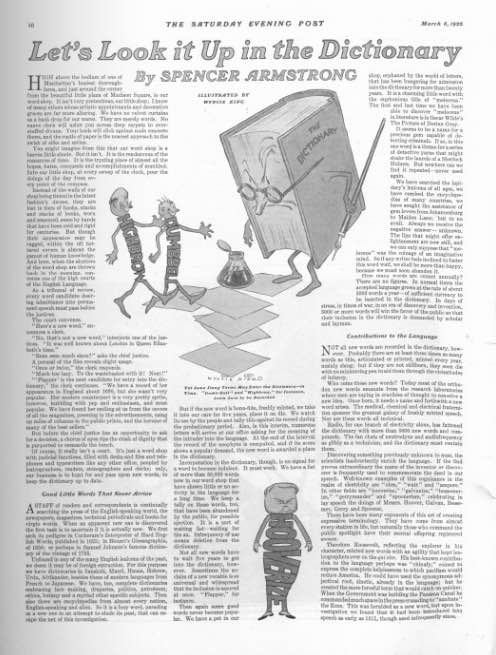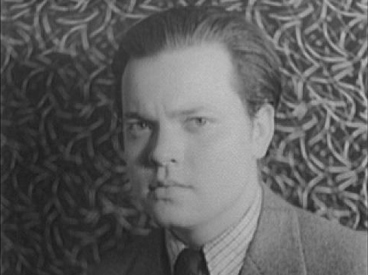What These 4 Words Reveal about Our Changing Language
You don’t have to be some sort of woke neoliberal technocrat to see how a slew of new words have entered the English language in your lifetime. That already massive unabridged dictionary is only getting larger as we gain new words. But less obvious — and far more interesting — is how we lose words.
Now, to say that we lose words isn’t entirely accurate. The English language doesn’t lose words — not really. Open to any page in an unabridged dictionary, and you’ll find not only words you’ve never heard before, but words you’re likely never to hear in a conversation — absume, hogling, whurl, words that are marked as either archaic or obsolete.
Why do so many useful and colorful words fall into obscurity while others flourish? The following four words illustrate some of the evolutionary forces that work upon our language.
Phlogiston: Science Moves On
In 1669, the German physician and alchemist J.J. Becher formulated what came to be known as the Phlogiston Theory to explain how things burned. The theory stated that all materials contain a substance called “combustible earth” — which later scientists renamed phlogiston — that is released during combustion. Wood, for example, was believed to be made up of ash and phlogiston, and when it burned, the phlogiston was released and the ash left behind.
As odd as this sounds today, it was the prevailing theory for more than a century. Scientists running tests based off this theory of combustion (later also applied to metal corrosion) made a number of advancements in chemistry, ultimately leading to the discovery, in 1774, of what English chemist Joseph Priestley called dephlogisticated air.
Thankfully, French chemist Antoine Lavoisier separately identified the element shortly after, and he gave it the name that stuck: oxygen.
The discovery of oxygen put an end to the Phlogiston Theory, as well as to the vocabulary that went along with it. Outside of historical contexts, we don’t get much call to use the word phlogiston in our daily lives anymore, much less dephlogisticated.
It’s happened before, and it will happen again: Words created to explain various scientific and philosophical theories disappear when the theories themselves are disproven through a better understanding of the world. Unless the vocabulary from these disproven theories finds new life in other disciplines (as, for instance, melancholic and sanguine did), they are liable to disappear from the common tongue, consigned to dwindling use in articles about historical oddities. (Like this one.)
Knocker-upper: Upgrading Your Tech
The crowing rooster waking the farm family at the crack of dawn has been a cliché for centuries. It also happens to be true. But as the industrial revolution took off, people left the farm and packed into cities, and they didn’t bring their roosters with them. Before the invention of the adjustable mechanical alarm clock in 1847, and long before the invention of the wake-up call, people needed some other way to make sure they got up in time for work.
Enter the knocker-uppers (also called knocker-ups).
Clients hired a knocker-upper to come to their home at a certain hour and tap on the bedroom window, usually using a long pole with a knob attached to the top, until they woke up. Affordable alarm clocks and the proliferation of electricity ultimately ended knocker-upping as a viable profession — and took the word knocker-upper with it — though the job did survive well into the 20th century.
Although we readily accept the idea that the forward march of technology renders old equipment obsolete, rarely do we stop to think about the vocabulary that we lose along with it. And that’s a long list of lost words, including some beauts like arquebus (a precursor to the musket); rarebrace, poleyn, and vambrace (parts of a suit of armor); and chatelaine (a sort of tool belt for a head housekeeper).
In a few generations — or perhaps just a few years — historians and logophiles may be explaining the obsolete words beeper, modem, and dot-matrix.
Mulatto: Social Pressures on Language
During the centuries that the enslavement of black Africans was considered an acceptable and profitable enterprise, the white European and American men in power developed their own vocabulary to simplify their ability to write oppression into law. Some localities developed complex hierarchal racial classification systems based on how much one’s “pure” blood was “diluted” by races considered inferior.
And that’s where the word mulatto — a person with one white and one black parent — comes from. And it didn’t stop there. The powers that be established a wide lexicon to label people with a mixed-race background, including the words mestizo, griffe, quadroon, and octaroon, this last used to describe a person with one great-grandparent of color.
Sometimes, social and political pressures act deliberately to remove words from the common tongue. The fact that some of these words have effectively disappeared is proof that language obsolescence isn’t always a bad thing.
Today, we’re seeing the same type of downward pressure on the word niggardly and its even more dysphonic noun form niggard. Originally a neutral word meaning “stingy,” niggardly has, after several high-profile incidents involving lawsuits and resignations, become a dog whistle for racists, providing a thin veil of plausible deniability with appeals to etymology. (We see the same with the word uppity.)
Instead of using niggardly, writers are encouraged to reach for a synonym: miserly, tight-fisted, penurious, stingy, and Malthusian could all fit the bill.
Nice: Don’t Be Silly
Santa Claus’ naughty and nice lists were quite different 700 years ago. When nice entered the language in the late 13th century, it meant “foolish” or “stupid.” It’s derived from the Latin nescius, literally “not-knowing.” In the late 1300s, the meaning shifted to indicate a person or actions considered excessively luxurious and then, by 1400, to denote someone who was finely arrayed, shy, or reserved, or something that was precise (as in the phrase “nice and slow”).
By the 1500s, nice was a word used to describe polite society — without any subtext of ignorance or foolishness. And the meaning of nice continued to shift with such rapidity through the 16th, 17th, and 18th centuries that the writer’s intended meaning for the word was not always clear.
Naughty, too, has seen a great change. It was originally an adjective meaning “poor” or “needy.” It described someone who had naught — nothing.
In the evolution of a language, sometimes the words remain but the meaning of the word changes, and it has happened more often than you might think: A computer used to be a person who did calculations. Girl used to describe a child of any gender. In the 16th century, bully was a gender-neutral term of endearment.
News of the Week: More Snow, Cloned Dogs, and the Wild, Exciting World of Celery
Winter’s Not Done Yet
I just looked out my window and it’s a wet, gray, early March day. I didn’t mean for that to rhyme; I just wanted to describe what it looks like outside my window.
I’m actually now in “spring mode,” ready to wear lighter clothing and put the shovels away, but winter isn’t finished with us quite yet. We just had a nor’easter that gave us a ton of rain and winds and damage to coastal homes, and tonight and tomorrow we’re supposed to get hit with another storm. This time more snow will be involved, anywhere between 1 and 12 inches, depending on where you live.
This is what I find funny about weather forecasts now: they have so much information that, in a way, they’re less accurate. A typical snowstorm forecast will go something like this:
“The European computer model says we’re going to get hammered by this storm, with over a foot of snow. The American model says we’re going to get only an inch or two. Then this third model says that we’re going to be somewhere in the middle, maybe four to six inches. We’re still collecting data, but that’s our best guess right now. Back to you, Ed.”
That’s a great forecast. I could have told you the same thing sitting on my couch in my sweatpants. But they used the word computer and showed a lot of Doppler radar images, so I guess we better pay attention to it.
People … People Who Need Cloned Dogs
I love dogs more than I love some people I know, but I’m not sure I could ever do this. Barbra Streisand cloned her dog. She wrote about it for The New York Times.
Streisand had her dog Samantha for 14 years, and just before the dog died, the vet scraped the inside of her cheek to get her DNA. The singer has a friend who did the same thing with his dog, and she wanted to try it to see if it would work. And it certainly did. It produced five puppies, three of which she kept and two she gave away.
It’s a little too sci-fi for me. I have this vision of an army of cloned little dogs taking over the planet. But I’m happy that Streisand is happy.
By the way, for the title of this section, I almost went with “Send in the Clones.”
Chiweenie
Every year I like to point out new words that are added to the various print and online dictionaries, even if sometimes they aren’t words at all. The Merriam-Webster Dictionary is my favorite. I just bought a brand new one because my old one vanished somehow, and it’s perfect timing, because this past week they announced some words that were added to the classic tome. And when I say “some” words, I mean 850.
Some of the new words and phrases include wordie (a lover of words), chiweenie (a cross between a Chihuahua and a dachshund, even if they’re not cloned), hate-watch (where you watch a movie or TV show even though you know it’s bad), and dumpster fire (which is defined as “a disastrous event,” though I’ve seen it used to mean a series of disastrous events, or just an overall definition of how things are going).
They’re also now including mansplain, but to be honest, I’m a little afraid to tell you what that is.
Mister Rogers’ Neighborhood at 50
To celebrate the 50th anniversary of Mister Rogers’ Neighborhood, PBS is airing a special this week titled It’s You I Like. It focuses on what Fred Rogers and the show meant to various people, including John Lithgow, Whoopi Goldberg, and Yo-Yo Ma. It’s hosted by Michael Keaton, who got his start in pictures as a crew member on the show. Here’s a preview:
The Razzies
Everyone knew who was going to win the Best This and That at the Oscars this year — the results were fairly predictable — but who won the awards for the Worst of the Year? The Golden Raspberry Awards, or Razzies, are held the day before the Oscars every year, and this year’s list of “winners” includes Tom Cruise for Worst Actor (The Mummy) and Tyler Perry for Worst Actress (Boo 2! A Madea Halloween), and The Emoji Movie was named The Worst Movie of the Year. Other people who won Razzies include Mel Gibson and Kim Basinger.
Oddly, the winners didn’t show up to accept their awards.
RIP Roger Bannister and David Ogden Stiers
Roger Bannister was the first person to break the four-minute mile, which he did on May 6, 1954. He later had a career as a neurologist. He died Saturday at the age of 88.
David Ogden Stiers was an actor best known for his role as Major Charles Emerson Winchester on M*A*S*H and for voice work in many animated films. He died Saturday at the age of 75.
Quote of the Week
“Now there are so many young people, and all my old friends are dead. They have either drunk themselves to death or they have naturally popped off the vine.”
—actor Christopher Plummer, on how the Oscars have changed
The Best and the Worst
Best: I’m cheating a little because this isn’t from this week, but I didn’t see it until this week, so it still counts, right? It’s a letter that New Yorker writer Alexander Woollcott sent to Ira Gershwin, and is now posted at Argosy Books in New York City. My favorite part is where he manages to tell Gershwin that he hopes he fries in hell, but still signs it “affectionately.”
Letter from Alexander Woollcott to Ira Gershwin, on display outside the Argosy Bookstore, New York. pic.twitter.com/wmtC2LGeP9
— southpaw (@nycsouthpaw) February 20, 2018
Worst: Just one last thing about the Oscars. Every year they have an “In Memoriam” segment, aka the “What People Are They Going to Leave Out This Year?” segment. Sure, it’s hard to pare down hundreds of people into a few dozen, but they’re making a decision about who to include and who not to include. This year they left out John Mahoney, Tobe Hooper, Powers Boothe, Dorothy Malone (who actually won an Oscar!), Adam West, John Gavin, Dina Merrill, Michael Parks, Jean Porter, Richard Anderson, Anne Jeffreys, and Michael Nyqvist, among many others — but they included people like a hairstylist and a public relations guy. I’m sure they were lovely people, but don’t tell me you don’t have time to include Rose Marie, a woman who was in the movies and television for 90 years, if you are going to include people movie fans have never heard of before.
This Week in History
Alexander Graham Bell Born (March 3, 1847)
The man who invented the telephone in 1876 would often greet people with a “Whoo-hoo!” when talking to them on the phone. Today, he’d probably just text an emoji. Here’s a Post piece from 1900 on how to use the telephone, and here’s Ron Carlson’s essay on why he wants the landline to stick around forever.
Barbie Introduced (March 9, 1959)
Next year will mark the 60th anniversary of everyone’s favorite doll. This month, Mattel is releasing new dolls to honor Amelia Earhart, Frida Kahlo, and other inspiring women.
This Week in Saturday Evening Post History: Freedom from Want (March 6, 1943)

The Post asked four writers to craft essays to accompany Norman Rockwell’s Four Freedoms paintings. Poet Carlos Bulosan contributed the essay for Freedom from Want.
The painting has to be one of the most parodied in history, with everyone from The Simpsons, superheroes, and the cast of Modern Family replacing the original family.
March Is National Celery Month
I think we can all agree there isn’t a more exciting food than celery! It’s light green! It’s mostly water! It doesn’t have a lot of flavor! Did I mention it’s mostly water?!
Okay, no matter how many exclamation points I use, I can’t get you pumped up for celery, but I happen to really love it (and not just with peanut butter spread on it). Here’s a recipe for Easy Homemade Chicken Salad from Genius Kitchen, which sounds good, though I think they might be overdoing it with the mustard, green peppers, and hard-boiled eggs. Here’s a simpler recipe from the same site.
I’ve noticed a lot of recipes include water chestnuts, but I wouldn’t go that route either. I do like white pepper in mine and maybe even some grapes. Yes, grapes.
Next Week’s Holidays and Events
Daylight Saving Time begins (March 11)
I hear there are people who like it when it stays light until 8 or 9 p.m. I’m not one of those people, but I know they exist. Set your clocks an hour ahead before you go to bed.
National Girl Scout Day (March 12)
How can you celebrate the day if you’re not a Girl Scout yourself? By purchasing some cookies, of course. I like the Samoas, which apparently are now called Caramel deLites.
Old Words and New Terms: Dictionary Development
Though they may conjure images of dusty antiquity, dictionaries are more akin to lively snakes, regularly shedding their skins of dilapidated words and devouring fresh new ones. Some of the recent verbal dreck include the outdated words brabble, cramoisie, growlery, and Ostmark. If you can’t use any of those vocables in a sentence, don’t worry — you’ll never need to. They’ve been eliminated from the reference work.
A growlery is basically a man cave, the latter a phrase Merriam-Webster’s lexicographers added in 2012 suggesting a room filled with football pennants, motorcycles, and beer paraphernalia. In September of this year, the dictionary behemoth announced that new additions to the lexicon included dog whistle and hive mind. The lexical hive mind drives the transformation of our dictionaries after all.
That isn’t to say there aren’t standards for new entries. Fresh vocabulary surfaces in various fashions — technology, politics, culture — but new words have to show robustness and staying power to warrant inclusion in dictionaries. In 1926, the Post’s article “Let’s Look It Up in the Dictionary” observed the process of inducting new words at a Manhattan editing house. Flapper, highbrow, and dumbbell were the new dictionary fare at the time, and meloceus was on the chopping block. “To gain a place in the dictionary, a word must express a thought, or new variance of a thought, that is not in the compendium already,” the author alleges. Furthermore, new language must pass a sort of popularity test, since “infrequency of use means deletion from the dictionary.”
If dictionaries were invented to enlighten the public as well as reflect its language, perhaps they’ve been working. Experts in 1926 estimated that “a college graduate has a command of upward of 20,000 words,” while the average person knew around 10,000. In 2013, data from The Economist revealed that most native English-speaking adults had a vocabulary of 20,000–35,000 words. While the credit for this lexical progress could be due to any number of factors, dictionaries deserve some recognition for our greater literacy.
Comprehension of language and objective meaning comes before all other communication. Dictionaries bridge gaps between social divisions and geographies, rendering the editors at Merriam-Webster and Oxford University Press quite influential after all. “But the lexicographer doesn’t make the language in any sense,” as the Post clarified in 1926; “he merely records the best of it, that which is used or usable. Neither can speakers or authors force new vehicles of speech into the language; not even the President.”

News of the Week: Best Places to Live, Good Health Habits, and Some Great American Pies
What Do San Francisco and Boise Have in Common?
Every year, U.S. News & World Report issues a list of the best metro areas in the U.S. to live in, based on a survey of readers. The list is based on many things, including cost of living, jobs, crime statistics, access to good education and healthcare, and other factors. Here’s this year’s list of the top 25.
Number 25 is Omaha, Nebraska, for its affordability. Number 15 is the Dallas-Fort Worth, Texas, area, for the growth and job market. And number one? It’s not Boston (which comes in at number 8 for the low unemployment rate and high salaries) but it does rhyme with it.
The worst place to live in America? For the 30th year in a row, it’s Cabot Cove, Maine. Everybody gets murdered there!
Don’t Eat at Midnight
The common wisdom has always been that if you eat the right kinds of foods (vegetables, fruits, low-fat and low-carb foods) and avoid the bad stuff (too much pasta, too much saturated fats, boxes of Ring Dings) and get some exercise, you’ll be all set. Now we find out that we have to be aware of when we eat foods, too.
Researchers at the American Heart Association say that people who eat breakfast are healthier in general than people who skip it; they have less heart disease and are less likely to have high cholesterol or high blood pressure. Even their blood sugar levels and metabolism are better. Yeah, the “breakfast is the most important meal of the day” saying comes to mind.
Research also suggests that if you eat most of your meals and calories earlier in the day, you’ll be healthier. In other words, try to skip that leftover pizza or that bag of Reese’s Peanut Butter Cups while you’re watching The Tonight Show.
I’m not saying I ate a bag of Reese’s Peanut Cups last night at midnight, but I’m sure somebody somewhere did.
RIP Richard Hatch, Professor Irwin Corey, and Alec McCowen
Richard Hatch was best known as Captain Apollo on the original Battlestar Galactica. He also took over for Michael Douglas on The Streets of San Francisco when Douglas left the series in the last season, and had roles on All My Children, Hawaii Five-0, Murder, She Wrote, Dynasty, Santa Barbara, and many other shows and movies. He wrote three Battlestar Galactica novels and tried to get an updated version of the show on the air in the late ’90s but it didn’t happen. A different version did become a hit show in 2004, and Hatch appeared as a different character, Tom Zarek.
Hatch died after a battle with cancer. He was 71.
Professor Irwin Corey is a rather hard–to-describe personality. He was a comic famous for long riffs that included weird wordplay, but he was also an actor, appearing in such movies as Car Wash, I’m Not Rappaport, Jack, and Woody Allen’s The Curse of the Jade Scorpion, as well as TV shows like The Phil Silvers Show and Doc. He also appeared on stage with Richard Dreyfuss in Sly Fox and Marlo Thomas in Thieves. And he had appeared on many variety shows and game shows since the 1950s.
Corey was 102. Here he is on Late Night with David Letterman in 1983.
British actor Alec McCowen had many acclaimed roles on the stage, including in St. Mark’s Gospel, Ivanov, King Lear, Equus, Waiting for Godot, The Philanthropist, and Kipling, but he was a film actor as well. He played the inspector in Alfred Hitchcock’s thriller Frenzy, and even played gadget-guru Q in the unofficial James Bond movie Never Say Never Again. He was also in Gangs of New York, A Night to Remember, The Loneliness of the Long Distance Runner, and Hanover Street, along with dozens of British and American TV shows.
McCowen passed away Monday at the age of 91.
Throwing Shade at Arancini in Your Safe Space
Back in September I told you about the new words being added to the Oxford English Dictionary. Now Merriam-Webster has released its list of new words too.
The list released this past week includes ghosting, which is when you suddenly cut off contact with a friend; throwing shade, where you insult someone in a subtle way; microaggression, a term we heard a lot during the presidential election that means (supposedly) a discriminatory action or comment that hurts another person or group; binge-watch, where you watch several episodes of a TV show in a row, thereby getting caught up and probably ruining the experience for you; and safe space, a term popular on college campuses now that Merriam-Webster defines as “a place intended to be free of bias, conflict, and criticism.” In other words, a place that doesn’t or shouldn’t exist.
They’re also adding arancini, which are rice balls. I have no idea why that wasn’t a word already or why it’s suddenly in vogue to the level that it needs to be added in 2017. Was there an arancini meme or hashtag I missed on social media?
Do we even need new words in the dictionary? I don’t think we’ve used all the old ones yet.
Vera Lynn to Release Album for 100th Birthday
I’ll be completely honest and say that I didn’t even realize Vera Lynn was still with us. Not only is she still going strong at 99 (she turns 100 on March 20), she’s going to release an album! The British singer’s Vera Lynn 100 will feature her original vocals — on songs such as “The White Cliffs of Dover” and “Auf Wiederseh’n, Sweetheart” — set to new orchestral arrangements.
The London Palladium will also hold a special concert in honor of Lynn on March 18.
This Week in History
Aaron Burr Born (February 6, 1756)
The Broadway musical Hamilton is massively popular. But does it get Aaron Burr wrong?
The Boy Scouts of America Founded (February 8, 1910)
Here’s a great essay from Jeff Csatari, who modeled for Norman Rockwell’s last calendar painting for The Boy Scouts of America, “Spirit of 1976.”
February Is Great American Pies Month
 I have a weird confession to make: I don’t really like homemade pie. It’s not that I dislike it, it’s just that I find that it’s often too flaky, and the apples aren’t what they should be. And I absolutely hate hot pie. I can’t eat a pie hot (or warm). It has to be ice cold. I’m pretty sure this is because I used to eat store-bought Table Talk pies when I was a kid, and they’re still the pies I go to when I buy pies. I just think they taste better.
I have a weird confession to make: I don’t really like homemade pie. It’s not that I dislike it, it’s just that I find that it’s often too flaky, and the apples aren’t what they should be. And I absolutely hate hot pie. I can’t eat a pie hot (or warm). It has to be ice cold. I’m pretty sure this is because I used to eat store-bought Table Talk pies when I was a kid, and they’re still the pies I go to when I buy pies. I just think they taste better.
But most people like hot, homemade pie, so don’t let me stop you from making them!
Apple pie is probably the most American of the American pies, so to celebrate Great American Pie Month in a real American way, here’s a classic recipe from the most American of magazines. Here’s one from Curtis Stone, Spiced Apple Pie. And if you’d like to put apple pie in some historical perspective, here’s an interesting piece from the July 25, 1942, issue of The Saturday Evening Post, “The Decline of Apple Pie.”
Just make sure you don’t make eating pie at midnight a regular habit.
Next Week’s Holidays and Events
Valentine’s Day (February 14)
Sure, you could look at all of the great love-related Saturday Evening Post covers or spend a special night out with your significant other, but what if you don’t have someone? You can celebrate Singles Awareness Day, which is officially February 15 but often celebrated on Valentine’s Day. And please note what the acronym is.
National Drink Wine Day (February 18)
If you didn’t drink enough wine on Valentine’s Day, you can do it today. There’s even an official web site for it. I suggest a nice Cabernet Sauvignon.
News of the Week: Words, Welles, and Why Celebrities Apologize in Advance
New Words (Merriam-Webster Division)

OMG you won’t BELIEVE what new words have been added to the Merriam-Webster Dictionary!
That line is an example of “clickbait,” those incredible, excitable, over-the-top headlines that make you click on something to find out more, and it’s one of the 1,700 new words added to the Merriam-Webster Unabridged Dictionary.
What’s odd is that most of these words are ones we would never actually use, unless we’re talking specifically about the words or in a story like this. When was the last time you were talking to your friends and used “jeggings,” “NSFW” or “WTF?” Those last two you’d probably just use the entire phrase. Some words, like “eggcorn,” are ones I’ve never even heard of before (it’s a word or phrase that you use by mistake but it sounds like the correct word or phrase, like when you don’t hear song lyrics correctly). The definition of “slendro” is “a pentatonic tuning employed for Javanese gamelans that divides the octave into five roughly similar internals.” Is there a dictionary that will translate what that sentence even means?
I hope that when you look up “emoji” in the dictionary there’s no text just little pictures.
New Words (Scrabble Division)
1,700 words? That’s nothing! Collins Official Scrabble Words has added 6,500 new words to their rulebook. One of the words is “cazh.” Try to guess what that means. We’ll get to that in a minute.
Other new words added include “blech,” “thanx,” “newb,” “bezzy,” and “yeesh.” And I’ll stop listing the new words now because language doesn’t seem to make sense anymore. The inclusion of new slang is irritating veteran Scrabble players. I would guess that most people who play the game don’t use this official guide to the words, they use a traditional dictionary and many of these words wouldn’t be in there (yet). I haven’t played Scrabble in a long time, so maybe people use the Web now for disputes?
Oh, “cazh”? It’s short for “casual.” So you’ll get to use that the next time you play Scrabble (a good word since it has a C, a Z, and an H), and your opponent will say, “That’s not a word!” and you’ll get online and prove that it is and he or she will be really upset.
Can You Use Those Words in a Sentence?
Perhaps one day the words above will be used at the Scripps National Spelling Bee. The finals were held last night on ESPN. Here are the results.
It’s interesting how a spelling bee is aired on the top sports network every year. I’m not sure how this got into the realm of sports (see also: poker). Shouldn’t they also cover events like Monopoly tournaments and chess matches too?
Lost Orson Welles Memoir Found

Someone needs to start a blog that just keeps track of “lost” or “missing” manuscripts and other items that people find years later. We’ve had a lot of them lately, from Harper Lee’s lost To Kill A Mockingbird sequel to the lost Dr. Seuss story to a lost Sherlock Holmes story that actually might not have been written by Sir Arthur Conan Doyle at all.
Now comes word that an unfinished memoir by actor/director/writer Orson Welles has been found. The pages were discovered in eight boxes that were shipped from Croatia by Oja Kodar, who was Welles’s partner when he passed away in 1985. It’s titled Confessions of a One-Man Band, and in it he talks about people like Ernest Hemingway and Rita Hayworth, and what it was like to navigate Hollywood (and why he couldn’t complete a lot of the projects he wanted to make).
This is a big year for Orson Welles fans. Besides this memoir, his unfinished last film, The Other Side of the Wind, will be completed if $2 million can be raised in a crowdfunding campaign.
Introducing the Pre-Apology

Jaguar PS / Shutterstock.com
A lot of celebrities say dumb things. Of course, a lot of people in general say dumb things, but when you’re a celebrity it’s reported by every single website in the world. Add social media to the mix and it seems like every celebrity is just 140 characters away from saying something that would seriously hurt their career. Then they argue with people on social media about it, which just makes everything worse, and that leads to the inevitable heartfelt apology, either on that same social media page or Access Hollywood or maybe Dr. Phil.
One celebrity is trying to head that off at the pass. Chris Pratt, one of the stars of Parks and Recreation and Guardians of the Galaxy, has already released an apology. It’s not for something he said or did, it’s for something he might say or do. Pratt has a post on his Facebook page where he apologizes for all of the dumb things he might say on the upcoming press tour for Jurassic World. He was probably inspired by the controversy-which-really-shouldn’t-have-been-a-controversy sparked by the interviews Robert Downey, Jr., Jeremy Renner, and Chris Evans gave several weeks ago promoting Avengers: Age of Ultron. Downey actually walked out in the middle of an interview, while Renner and Evans apologized for calling Black Widow a “slut.” At the same time, Renner released a statement apologizing for a tasteless joke about “a fictional character,” which seemed like a little dig at the people getting oh-so-upset by a sarcastic joke about someone who doesn’t really exist.
Kudos to Pratt. It’s refreshing to see a Hollywood star who not only has a sense of humor about this stuff but is actually Web-savvy too.
National Mint Julep Day

The Kentucky Derby is always held the first Saturday in May, so you would think that National Mint Julep Day would be held on that day since the famous drink is synonymous with the famous horse race. But it’s actually tomorrow. Food Network has a mint julep recipe that it calls “perfect”. Martha Stewart has a recipe too, and something tells me that she considers hers to be even more perfect. You don’t argue with Martha Stewart.
Seriously, don’t argue with Martha Stewart.
Upcoming Anniversaries and Events
Walt Whitman born (May 31, 1819)
The Walt Whitman Archive has everything you need to know about the life and work of the American poet.
Marilyn Monroe born (June 1, 1926)
Here’s a 1956 interview in The Saturday Evening Post with the blonde movie star.
End of the Civil War (June 2, 1865)
The Saturday Evening Post had extensive coverage of the war. Here’s what we had to say about The Battle of Gettysburg, a “half-time” report from 1863, and here are some little known facts about the war.
Comedians in Cars Getting Coffee season 6 premiere (June 3)
This season of the comics-get-coffee show starts off with Jerry Seinfeld’s Seinfeld costar Julia Louis-Dreyfus, then the following weeks we’ll see Jim Carrey, Bill Maher, Steve Harvey, new Daily Show host Trevor Noah, and Stephen Colbert.
Robert F. Kennedy assassinated (June 5, 1968)
The John F. Kennedy Library and Museum site has a biography of the Massachusetts senator, along with transcripts of many of his speeches.
D-Day (June 6, 1944)
SEP Archive Director Jeff Nilsson writes about “The Century’s Best-Kept Secret,” the planned invasion of Nazi-held Europe.